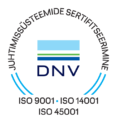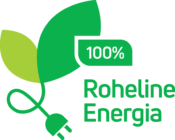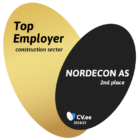As commissioned by the Tallinn University of Technology, Nordecon Betoon has completed the construction of a test building with almost zero energy consumption, unique in Estonia and the whole of Europe. The building will be opened today. This engineeringly sophisticated building designed for research work cost EUR 403,635 plus VAT.
“For the builders the work of constructing this test building for the Tallinn University of Technology was an untypical experience and a useful lesson because the building is an original research-oriented prototype, to be used for scientific purposes including tests aimed at developing cheaper and more efficient solutions for the construction industry in general,” said Toomas Toompuu, Member of the Management Board of Nordecon Betoon OÜ. “Quality assurance was a priority throughout the construction process along with adherence to the university’s end result expectations. Leading engineers from several faculties of the Tallinn University of Technology inspected the completed building and approved it. Such serious construction supervision is a rarity in the local market of construction services. Our cooperation with the customer progressed pleasantly and it was mutually very interesting.”
According to Toomas Toompuu, the test building at Mäepealse Street 3 in Tallinn complies with the passive building requirements: thermal insulation of the external surfaces, aperture fillings and air-tightness of the building allow it to be classified as a structure with almost zero energy consumption. The building contains various technological systems that can be used separately or in combination for testing of building heating and cooling solutions, for instance: ground thermal pump with spiral and horizontal collectors, air-water thermal pump and air-air thermal pump. Also installed in the building are electrical heating and additional ventilation heating systems with ventilation devices that ensure a high level of heat recovery.
Installed around the building for testing purposes are two types of solar panels used for heating water for consumers and the residual heat goes into the building heating system. In the summer period the excessive heat from the sun collectors is channelled via the ground thermal pump into the soil for storage.
The building is freely cooled: even in the summertime the cooling devices can be made to work so as to engage the pumps to heat the building, thus enabling year-round testing of pump functionality.
Specially designed automated equipment controls all the various devices. Electricity consumption of all heating and cooling devices is registered via separate meters for clarity in testing conditions, to assess their consumer costs and recoupment value.
Different insulation materials and structural solutions were used to construct the building (external walls, ceilings/roof) for testing of external surface thermal insulation properties. Different aperture fillings were used as well.
The work of designing and constructing the test building of the Tallinn University of Technology commenced in September 2012. In mid-March 2013 the building was basically completed, with the seasonal external finishing work done by 15 May.









